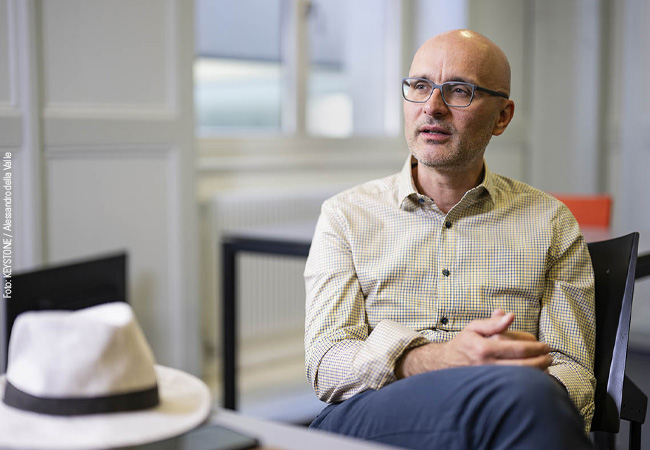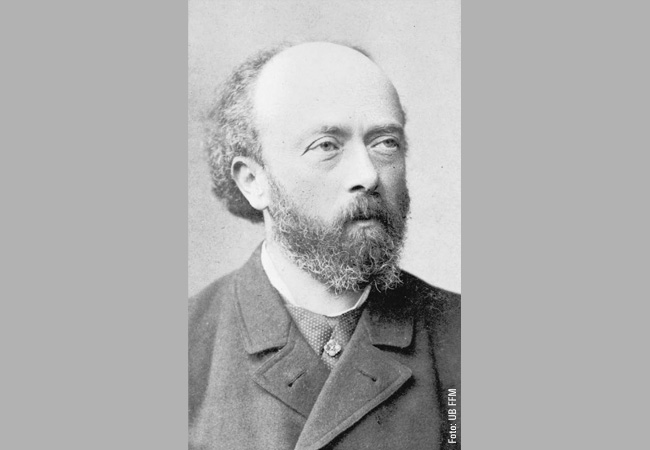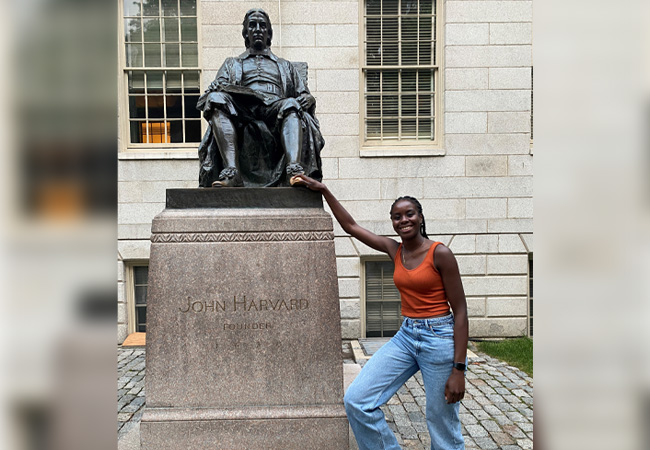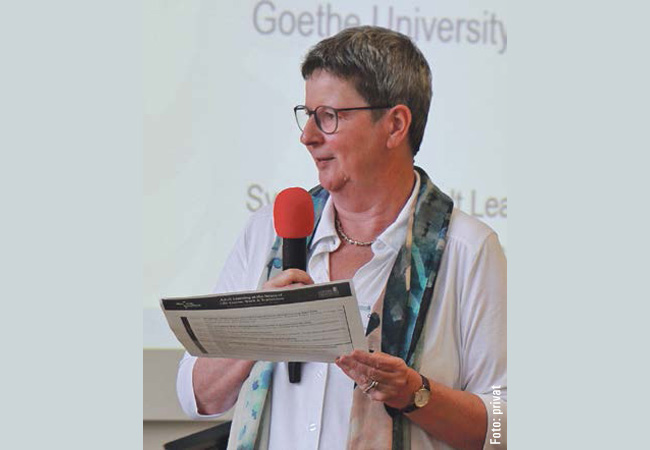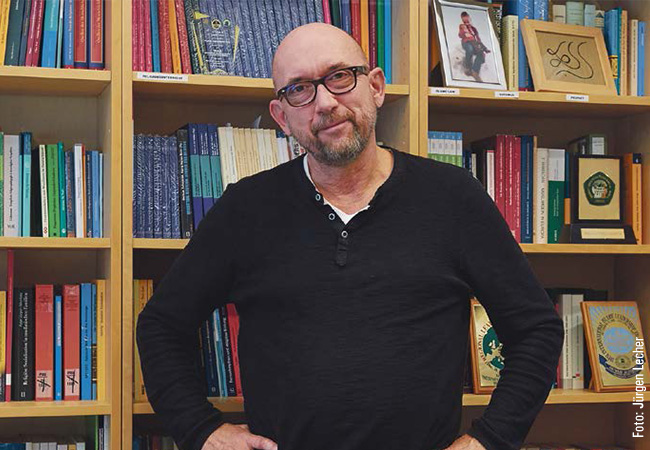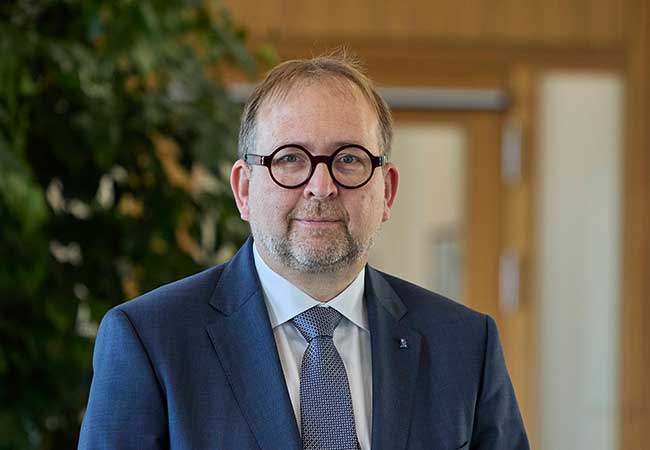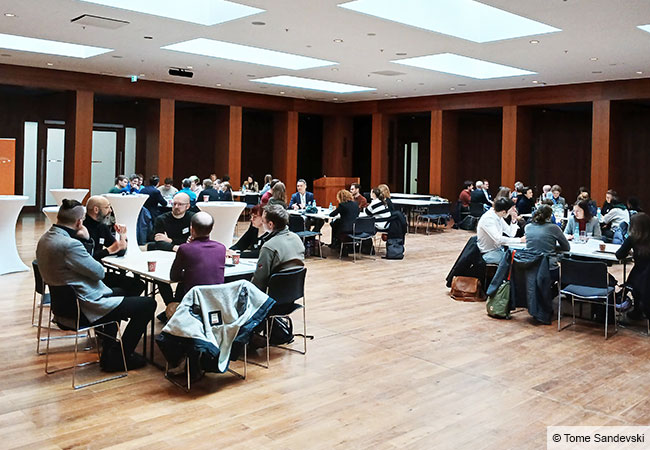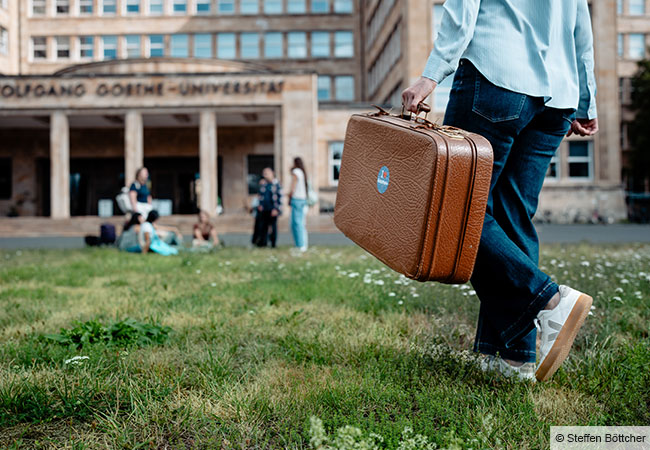Anti-Semitism in 2023: On the situation of educational institutions – an essay by Sabine Andresen and Wolfgang Meseth
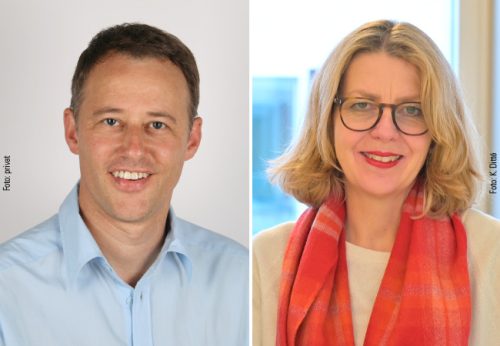
The phenomenon is not new: When something goes drastically wrong and triggers political concerns on a major scale, education is seen as the panacea. Especially in times of crisis, a special impact is attributed to political education, the teaching of historical knowledge and a pedagogical understanding of human rights and humanity. We see this now, as the horror at the massacre perpetrated by members of Hamas in southern Israel, the latter’s bombardments, the war in Gaza and the many victims demand answers as to how these events should be classified and how we should react to them. Here in Germany, the anti-Semitism visible across very different milieus and political settings is a cause of great worries, especially among Jewish people. It would seem, several assessments point out, that the existing information and education efforts have not had the desired effect.
Put differently, education, whether in the family or at kindergarten, but above all in schools, youth centers or universities, is seen as the instrument capable of at least attenuating, if not entirely eliminating, anti-Semitism as well as all other forms of group-focused enmity misanthropy. In Germany, this discourse also makes particular reference to the radio broadcasts and writings of Theodor W. Adorno, who expressed the hope for a progressive and democratic pedagogy, an “Erziehung nach Auschwitz” [education after Auschwitz].
Yet schools, just like universities, youth centers or sports clubs, are also places where marginalization, discrimination, one-sided and polarizing conflicts as well as anti-Semitic or anti-Muslim resentment spread. International conflicts, wars, domestic tensions, along with their visibility in the media and associated debates and impressions, do not dissolve once the school bell rings. They accompany pupils to class, athletes to training, and students to seminars. It is not just us university teachers, who are noticing how difficult it is to address topics like the events of October 7, 2023, Israel’s right to exist, the Palestinian situation, the interests of other countries in the region and not least Germany’s response to anti-Semitic comments, threats and actual acts of violence, and how helpless some may feel. Many teachers are also asking how they should discuss the Middle East conflict with students and seeking advice on how to deal with various groups of young people. The current newsletter issued by the Bildungsstätte Anne Frank [Anne Frank Educational Center], for example, contains corresponding information.
The challenges for those working in nurseries, schools or universities lie not only in developing a sensitivity towards what others hear, think, imply, towards both knowledge and half-knowledge and the complexity inherent in most conflicts, but also in having a sound foundation on which to base decisions. Such decisions could include when and whether a teacher should join in the dialog or other forms of interaction as either a mediator or as a provider of facts. Or when and how they should actively open up the floor for a group debate – whether involving pupils or students – about anti-Semitism in Germany, the role of the Israeli government, or about calling on Muslims in Germany to distance themselves from the terror of Hamas. In theory, there are many opportunities to discuss and exchange thoughts or ideas, but many teachers do not make use of them, including out of fear that they are not knowledgeable enough. Even the very idea of talking about anti-Semitism with and within a group of young people whose reaction is difficult to gauge can be disconcerting.
This leads to questions that are important for educational contexts:
When do school or university teachers put their teaching plan aside, and allow time for mourning, for voicing anxieties, for talking about October 7, 2023 and the current war in Gaza, about the history of the region and its conflicts, but also – and above all – about the fear of Jewish people in Germany, whether in Frankfurt or Berlin, of anti-Semitic reprisals, hatred and violence and of others failing to speak out and looking the other way? When can the experiences of those students be discussed who are exposed to anti-Semitic incidents and experience the lack of solidarity at schools and universities? When will students who have experienced anti-Muslim hate be heard? When is it important to listen and afford space for different perspectives, and when is it necessary to explain the facts of the Middle East conflict? When do we need to set communicative boundaries to political statements that enter the classroom, lecture hall, nursery school, or youth club, stirring up anti-Semitism and other forms of group-focused enmity?
“Education is conservative. Its organization is particularly so. Never has it been preparation for a structural change in society. Always – quite without exception – it was foremost the consequence of the change itself”
Siegfried Bernfeld, 1925
Given that the demands placed on the further development of “Erziehung nach Auschwitz” and its adaptation to migration societies are extremely challenging, teachers often feel left alone in their search for answers. That should not be the case. In addition to the exchange among peers, managers and superiors also have a central role to play when it comes to alleviating feelings of insecurity. It can happen, after all, that ethical issues are discussed in a reflected manner one moment, and the next instance the focus might shift to the personal integrity, political opinions and moral attitudes of those present. In such situations, it becomes increasingly impossible for teachers and educationalists to retreat to the role of unbiased moderator. All it takes is one ambiguous word, one ill-considered gesture, one moment of inattentiveness for them to potentially become involved in the conflict and prompted to assume a political and/or moral stance.
Faced with anti-Semitism, a lack of knowledge, and various normative and political interpretations of the complexity of the Middle East conflict, future research will have to focus on deciphering the dynamics of teaching and learning processes in educational institutions, sounding out possibilities and scope for pedagogical action, and defining – realistically and as accurately as possible – the limits of both education and educational settings. This will also include promoting political education, even in times of limited funds. An important component of this is education about anti-Semitism, and whether new concepts are required. Based on this, empirical and theoretical research are needed on ways of implementing existing, modified or new concepts. If, for example – as existing studies show – well-intentioned historical and political education about anti-Semitism leads to the reproduction of anti-Semitic stereotypes in school lessons or textbooks, this should alert us to side effects of such educational aspirations that have so far hardly been noted. The following is paradoxical and yet evidently pedagogically necessary: To teach about the emergence and particular structure of anti-Semitic stereotypes, these stereotypes must be presented and named as such. They must be invoked and explicitly highlighted, so that they can be discussed and their perfidious mechanisms exposed.
More education = less social conflicts?
However, as is true of all teaching, it applies here, too, that what people learn is not always (only) what they ought to learn. Knowledge taught in schools comes up against pupils whose prior knowledge varies and who often draw their own conclusions from the knowledge presented to them, in a manner that runs contrary to what was pedagogically and/or didactically intended. Wrong answers circulating during math lessons are annoying, but they are not normatively charged, unlike anti-Semitic stereotypes that can be reproduced and reinforced in and through teaching. We in educational science and educational research still know too little about such mechanisms and about the unintended side effects of historical and political education. There is, however, a growing realization that more education does not necessarily contribute to solving social problems with deep historical roots. Public educational institutions often reproduce what is already being negotiated and problematized in society – something Siegfried Bernfeld was already aware of in 1925, when he pointed out to prominent educationalists in his book “Sisyphus, or the Limits of Education” that there were limits to what they could do. “Education is conservative. Its organization is particularly so. Never has it been preparation for a structural change in society. Always – quite without exception – it was foremost the consequence of the change itself” (Bernfeld 2000: 119).
Bernfeld was a Jewish scholar working in childhood and youth research, a Marxist and an intellectual with a psychoanalytical leaning. Because he called into question the most important pedagogical goals and the hopes for the impact education might have, his works were regarded with a certain ambivalence. In today’s context, too, Bernfeld’s observations make it painfully clear that education is not the avantgarde for social change, but first and foremost the sounding board for social conflicts for which educationalists often do not feel properly prepared. It is here that a large part of the responsibility in university teaching lies.
As a proactive response to these challenges, the “Erziehung nach Auschwitz” teaching and research forum at Goethe University’s Faculty of Educational Sciences is endeavoring to create educational opportunities for students and teaching staff alike – this year, for example, in the form of four debates organized in cooperation with the Jewish Academy.
In his speech to students in Vienna entitled “Aspects of the New Right-Wing Extremism”, Adorno raised the problem of a “spectator-like relationship with reality” (Adorno 2019: 55) and urged the audience not to persist in such a relationship. Recent weeks have shown once again that the university and its members, too, need to clarify what this demand means in concrete terms for their research and teaching.
Sabine Andresen is Professor of Social Pedagogy and Family Research; Wolfgang Meseth is Professor of Educational Science, with a focus on education, policy and society. Both research and lecture at Goethe University Frankfurt.
Literature
Adorno, Theodor W. Adorno (2019):
Aspekte des neuen Rechtsradikalismus.
Berlin: Suhrkamp.
Bernfeld, Siegfried: (2000):
Sisyphos oder die Grenzen der Erziehung.
Frankfurt/M: Suhrkamp.
Review of the hearing „What do we know about the National Socialist education system?“
The four-part hearing series of the „Erziehung nach Auschwitz“ teaching and research forum deals with the challenges of teaching the history of National Socialism and the Shoah in and out of school within the context of current conflicts in the politics of remembrance. At the third hearing, held on November 1-2, experts in historical educational research and around 70 participants discussed the question „What do we know about the educational system under National Socialism?“ Based on a concise presentation of the current state of research (A. Rohstock, Kassel), the NS „eugenics program“ and its semantics of „unfit for education“, „inferior“ or „unworthy of life“ were reconstructed (V. Moser, Frankfurt), and the consequences of such dehumanizing semantics for youth welfare at the time examined (C. Kuhlmann, Bochum).
Using the example of the members‘ magazine „Bund Deutscher Mädel“ (BDM) (J. Riepenhausen, Frankfurt), one presentation focused on the question of how hostility towards Jews in National Socialist youth associations can be considered a core indoctrinatory element, and analyzed it from an educational-historical perspective. The question of how Nazi history was addressed in history didactics after 1945 was also examined (C. Brüning, University of Marburg). The picture here is similar to that in other scientific disciplines, politics, law and public life: It is personnel continuities between the National Socialist era and the Federal Republic of Germany that resulted in a delayed confrontation with Nazi crimes and a coming to terms with guilt and responsibility, personal involvement and ideological continuities.
The contributions to the conference, which were primarily inspired by the history of knowledge, impressively drew attention to the fact that and how anti-Semitism in particular, but also the semantics of „educational incapacity“ and colonial racism, can be traced from the Weimar Republic through the dramatic escalation during National Socialism to the Third Reich’s two successor states. The main outcome of this third hearing is that central challenges for future research will be to distinguish precisely between historical and current anti-Semitic, racist and ableist manifestations; to identify continuities and breaks between the Nazi past and the German post-war history; and to expose and evaluate the manifestations of such semantics in the respective educational systems in a contextualized manner.
The fourth and final hearing will take place from January 31 to February 1, 2024 at Frankfurt’s Jewish Community. The topic of discussion will be „Memorials – Museums – Extracurricular Youth Education“. Further information (in German) on the „Erziehung nach Auschwitz“ teaching and research forum is available here.


